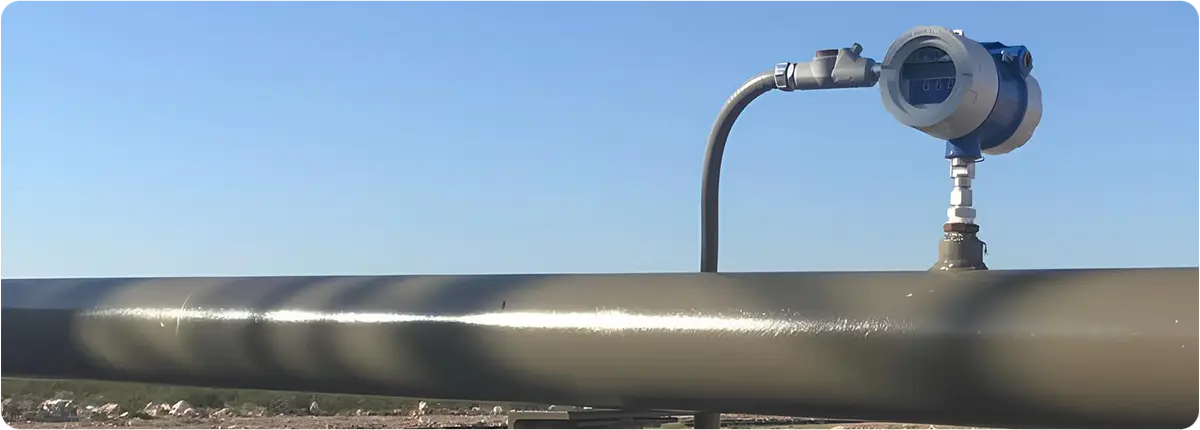Thermal Mass Flowmeters and Industrial Applications
Thermal mass flowmeters are devices that measure mass flow using the principle of heat transfer. They are particularly effective for gas measurement, providing high accuracy in industries such as chemicals, energy, environmental technologies, HVAC, and process control. With no moving parts, they offer low maintenance and long service life.

WORKING PRINCIPLE
Thermal mass flowmeters work by measuring the amount of heat carried away from a heated sensor by the flowing fluid. Two main principles are applied:
- Convective heat transfer: The heater element is kept at a constant temperature, and the heat carried away by the fluid is proportional to flow velocity.
- Differential temperature method: The temperature difference between two sensors is measured and correlated to flow.
Basic equation:
Qm = k · ΔT
Qm: mass flow rate (kg/h), k: calibration constant, ΔT: temperature difference (°C).
STRUCTURAL FEATURES
- Sensors: heating element and reference temperature sensors
- Materials: Stainless steel, Inconel, Teflon coatings
- Output signals: 4-20 mA, Pulse, HART, Profibus, Modbus
- Optional pressure and temperature compensation
- ATEX-certified models for explosive environments
ADVANTAGES AND LIMITATIONS
Advantages:
- Direct mass flow measurement (no density compensation required)
- High accuracy (typically 1% – 2%)
- No moving parts, minimal maintenance
- Wide measurement range
Limitations:
- Accuracy may be reduced in dusty or particulate-laden flows
- Primarily limited to gas measurement
- Limitations under very high pressure and temperature conditions
APPLICATION AREAS
- Natural gas and biogas measurement
- Airflow control in HVAC systems
- Chemical and petrochemical processes
- Emission monitoring in environmental technologies
- Combustion control in power plants
STANDARDS AND CALIBRATION
- ISO 14511: Standard for thermal flowmeters
- EPA and TÜV certified models for emission measurement
- ATEX certification for explosive environments
- Regular calibration is essential for maintaining accuracy
CONCLUSION
Thermal mass flowmeters are vital instruments for gas flow measurement, offering high accuracy, low maintenance, and broad industrial applicability. Their compatibility with digital communication protocols ensures seamless integration into modern process automation systems.
 Convalve
Convalve Convalve
Convalve